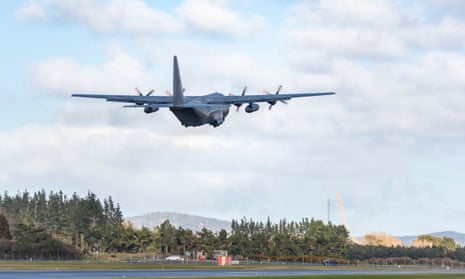What is unfolding now in Afghanistan is a moment that Afghans can’t turn away from. It will mean separated families, death, torture and sexual slavery – women, the rainbow community, journalists and human rights defenders will be most zealously targeted. At this critical moment, they have hope of rescue. But in Aotearoa New Zealand, our government is at risk of letting this hope slip away. History judges uninterested bystanders harshly. It isn’t like us to be one of those.
This week our government announced we would send a New Zealand defence force (NZDF) vessel to bring a limited category of people back from Kabul. On Thursday one of our air force Hercules planes left for Afghanistan, and I acknowledge the risks our defence force personnel are taking in this time of Covid-19 to save the lives of people who have helped us.
But we will take only Kiwis and a group of interpreters who assisted the NZDF in its operations there, together with their families. We will not bring back the families of Kiwi Afghans, nor will we help any other targeted group. It is worth noting that the threat the interpreters faced from persistent Taliban presence has been known to the government for some time. There was never cause to leave them in Afghanistan until an outbreak of civil war or fully-fledged Taliban occupation.
Over the past week, the messages and calls from Afghan New Zealanders and Afghans on the ground have flooded in. In my office we scroll through pages of identity documents, photos and location details, sent by family members here grasping for any lifeline for their loved ones. I have my dad translating Farsi notes sent from people who let us know of death threats, and of how they change their locations daily because the Taliban comes looking for them with printed copies of those same photo IDs.
They detail the grounds for their persecution: work for foreign organisations, for the deposed government, women with education and a voice they happen to have used publicly. As former refugees, we know how important these lifelines are, we know the anxiety that went into sending information out into the world hoping to be believed, hoping for humanity. Ex-UN aid workers, diplomats and human rights campaigners have all been in touch advocating for targeted Afghans they’ve worked with. They know New Zealand is at least sending a plane, landing and able to bring people back – so they beg us to do more. It would be unforgivable if our plane leaves Kabul with even a single empty seat.
While it is a relief to have our own people – and the interpreters who helped us – finally rescued, “like-minded” nations such as the UK and Canada have committed to taking thousands of at-risk Afghans, while we have not. New Zealand is already unlikely to fill its refugee resettlement quota this year because of Covid-19. In that context, rescuing lives from the clutches of the Taliban and out of Kabul is within our existing intake levels.
These harrowing events are befalling a people and culture far from the violent oppression of the Taliban. Afghan women were often educated professionals before that force first took over, and came back to that life after the Taliban’s first fall. As a lawyer, I was proud to see our own Justice Grazebrook, the president of the International Association of Women Judges, call on the New Zealand government to secure safe passage for Afghan women judges and their families, knowing they would be at grave risk.
The New Zealand Afghan community held rallies before the current Covid-19 lockdown.
When I arrived, the organisers – middle-aged men whom I would have called uncle – told me they were prioritising the voices of young women, who would speak first. The fierce and eloquent speeches that followed were heartbreaking and hope-giving. This is a community of survivors.
It is also a community of Kiwis with family trapped under one of the most violent and oppressive forces of the modern world. How can we not do all we can to reunite these families, to keep human rights defenders or journalists safe? Right now, there is a brief window when we can land at that airport and save lives. This is a moment when our human community either rises to the challenge or looks away. We must not let this moment pass.
There must be no empty seats on New Zealand’s plane.
Golriz Ghahraman is an Iranian-born Green party MP. She was the first refugee to be elected to New Zealand’s parliament
